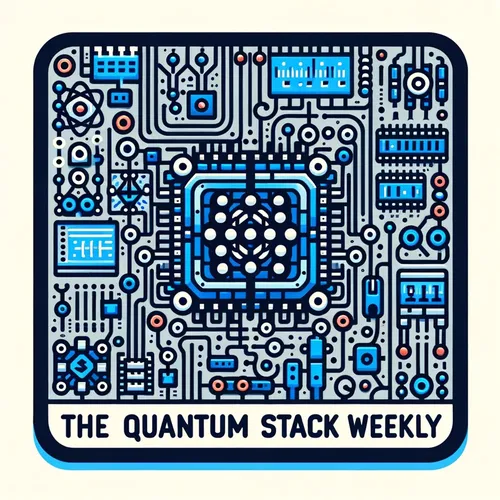Magnetic Quantum Materials: A Resilient Revolution in Qubit Stability | The Quantum Stack Weekly
- Author
- Quiet. Please
- Published
- Fri 22 Aug 2025
- Episode Link
- https://www.spreaker.com/episode/magnetic-quantum-materials-a-resilient-revolution-in-qubit-stability-the-quantum-stack-weekly--67479167
This is your The Quantum Stack Weekly podcast.
Picture this: It’s just past sunrise and the experimental hall at Chalmers in Gothenburg shimmers with the low hum of cryostats and the faint glow of status LEDs – an orchestra of quantum ambition. I’m Leo, your Learning Enhanced Operator, and in the past 24 hours, the quantum world reached a turning point. A team from Chalmers University and Aalto University has announced the creation of a *magnetic quantum material* that could flip the script on one of our toughest problems: qubit fragility.
Let me cut straight to the pulse of this advance. If you’ve ever tried to tune a violin in a subway station, you know why quantum computers are so temperamental. Qubits—these delicate superpositions of zero and one—hate noise. The tiniest stray magnetic field, the slightest brush of heat, and coherence vanishes. Our most promising quantum hardware has demanded elaborate shielding, sub-zero temperatures, and, frankly, a little prayer.
But what if, instead, we could build quantum states that *welcome disturbance*? That’s what Guangze Chen and team have achieved: a new quantum material whose *topological excitations*—think of them as quantum knots—are protected by the underlying magnetism itself. Rather than hiding qubits away from noise, we now have a material where quantum states remain stable even when the environment gets rowdy.
The implications are vast. Imagine a quantum computer robust enough to crunch through simulations for climate models, drug molecules, or financial systems—without the usual hardware gymnastics. Unlike past approaches relying on rare spin-orbit effects, this new platform uses magnetic interactions common in far more materials, potentially scaling up much more quickly. This, my friends, is a detour on the quantum roadmap: instead of endless error-correction overhead and engineering agony, we weave resilience right into the tapestry of matter.
Now, here’s where I see real poetry: While the news cycles are ablaze with talk of building cyber-resilient infrastructure for an uncertain world, our quantum neighbors are pioneering resilience at the very foundation of computation. Just as today’s policymakers rush to future-proof our digital fortresses against “harvest now, decrypt later” quantum threats, researchers like Chen and David Awschalom are future-proofing the *very bits of quantum information* we hope will propel science forward.
As I walk the lab tonight, the glow of the dilution fridge feels less like a technological challenge and more like a beacon—an invitation to rethink what it means for computation to be resilient, elegant, and bold.
Thank you for tuning in to The Quantum Stack Weekly. If any question—basic or bizarre—sparks your curiosity, or there’s a topic you want unraveled on air, email me at [email protected]. Don’t forget to subscribe to keep quantum possibilities in your feed. This has been a Quiet Please Production. For more, visit quietplease dot AI.
For more http://www.quietplease.ai
Get the best deals https://amzn.to/3ODvOta
